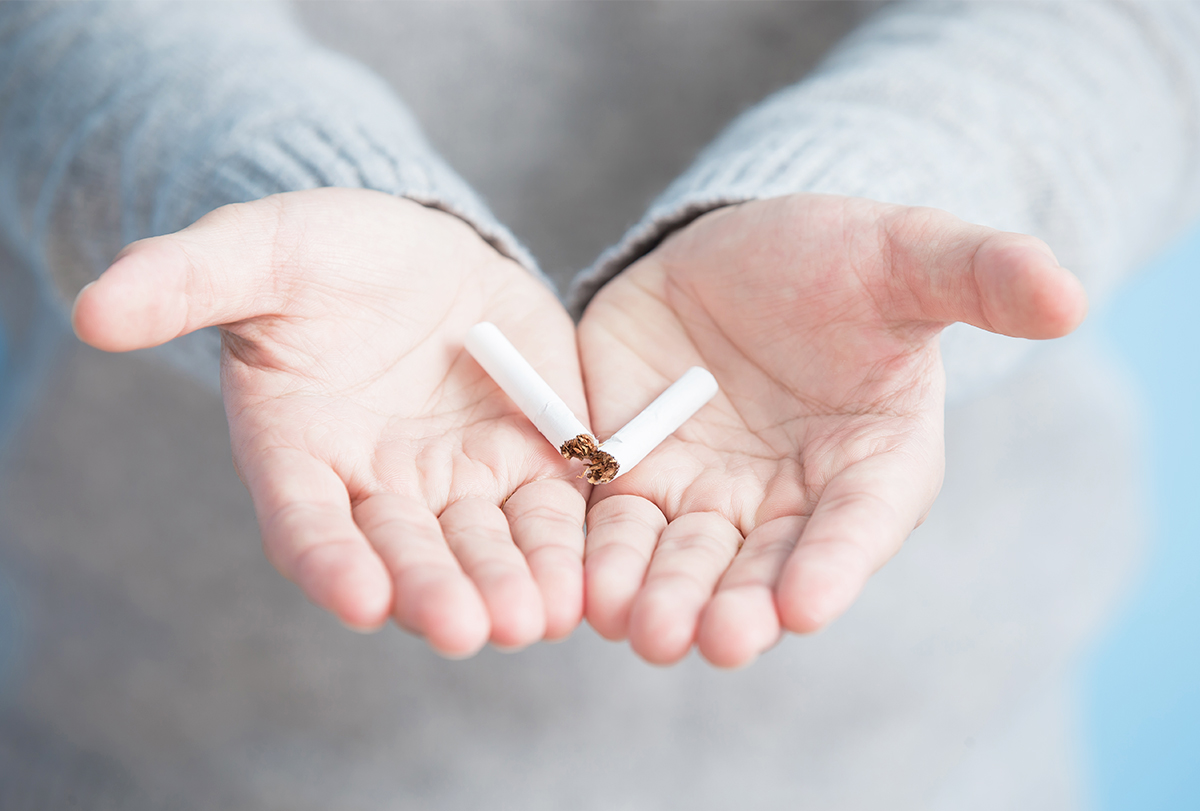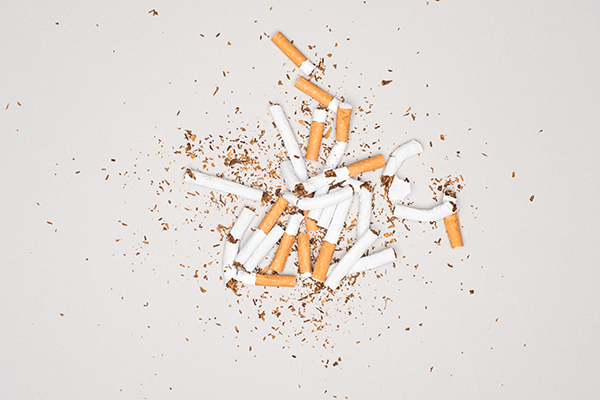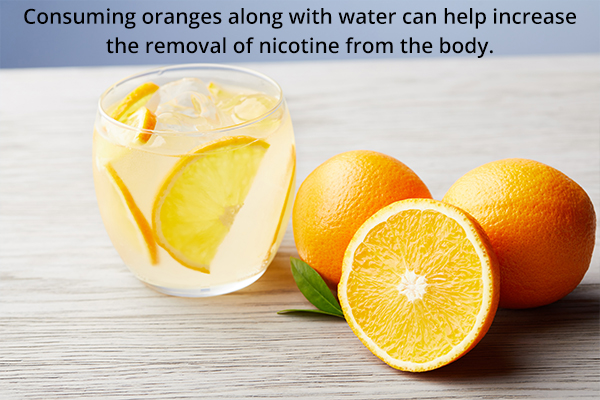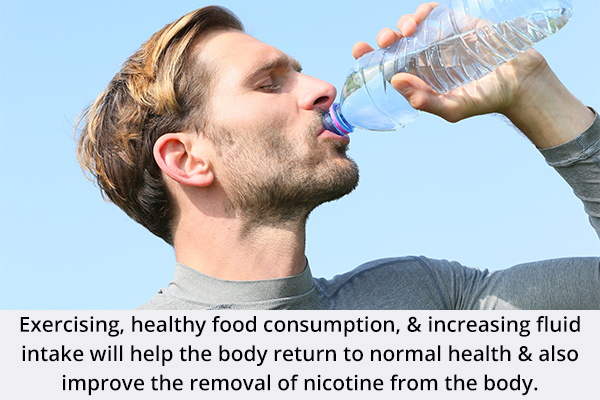In this article:
Nicotine is an addictive substance readily found in cigarettes. It is common for smokers to develop nicotine dependence, which makes it difficult to quit the harmful habit.

Nicotine can adversely affect your body by disrupting its natural balance. However, you can gradually remove nicotine from your body by following simple measures, such as increasing fluid intake, exercising, and consuming antioxidants.
Why Is Nicotine Addictive?
Nicotine is a naturally occurring alkaloid that binds to cholinergic receptors in the brain (adrenal medulla), causing stimulating and rewarding effects. (1)
Whenever nicotine enters the body, it releases the neurotransmitter dopamine, which then activates the reward center. As a result, the body tries to keep the reward center active, for which it induces a craving for nicotine every few hours.
This creates a vicious cycle, where the individual keeps wanting to release dopamine and activating the reward center, thereby getting addicted to nicotine. (2) Typically, a cigarette contains 10–15 mg of nicotine and delivers 1 mg to the smoker. (3)
The Ill-Effects of Nicotine on the Body

Nicotine can affect various processes in the body, causing changes such as: (4)(5)
- High blood pressure
- Elevated heart work and heart rate
- Decreased blood flow to the coronary blood system (through vasoconstriction of those vessels)
- Chronic inflammatory state
- Elevated bad cholesterol levels
- Increased risk of clot formation
- Decreased insulin production, thus causing high blood sugar levels (6)
- High risk of stroke and heart attacks
- Hardening of the vessel walls (7)
- Poor sleep (8)
- Gastrointestinal problems such as diarrhea, cramps, nausea, and vomiting (9)
Ways to Flush Out Nicotine From the Body
Yes. Nicotine is broken down into other substrates in the body, which are eventually excreted and removed by the kidney. (3) The at-home therapies that you can do to help your kidneys remove nicotine from the body include:
- Drinking lots of water
- Exercising to increase blood flow to the kidneys
Moreover, consuming foods that are rich in antioxidants should be considered. While antioxidants don’t remove nicotine from the body, they can help with some of the negative side effects of nicotine. (10)
The Importance of Hydration for Nicotine Excretion
Being well hydrated does not help with nicotine detoxification. However, drinking ample fluids does allow for nicotine removal from the body. Nevertheless, one should continue to stay hydrated for its various positive health effects apart from being able to remove nicotine from the body.
Exercises That Help Cleanse the Lungs of Nicotine

The moment you stop smoking or taking nicotine, the process of elimination from the body starts. The positive effects of smoking cessation are seen immediately.
Pairing this with cardiovascular exercises can help increase the lung and heart function. (11) This helps improve long-term outcomes and lung health. The recommended cardiovascular exercises include running, walking, swimming, and biking.
The Role of Sleep in Nicotine Removal
An adequate amount of sleep has many health benefits. However, it does not remove nicotine from the body. Since nicotine can cause poor sleep, smoking cessation can help improve one’s sleep. (12)
How to Successfully Quit Smoking?
The best way to quit smoking is to have a commitment and motivation toward the idea. It is highly advised to have a plan and an exact time of stopping to smoke. Once that plan is set, throw away all your nicotine products. Try to replace the habit with a different hobby, such as going for a walk or a run.
To help with the withdrawal symptoms, you can use nicotine replacement products such as gum or patches, and then slowly wean from those as well. (13) Certain drugs such as varenicline can help with the nicotine cravings and therefore help with quitting. (14)
ALSO READ: How Does Smoking Harm Your Health and Tips to Quit It
Does Nicotine Harm the Reproductive Process?
Yes, smoking and nicotine can decrease male and female reproductive viability. It may impair the quality of eggs and therefore lead to infertility. Nicotine may also affect sperm quality and motility. (15)
Can Eating Oranges Facilitate Nicotine Removal?

There has been some thought that the acidity due to the high amount of vitamin C in oranges can potentially help remove some nicotine from the body. (16)
In people who are going to stop smoking, consuming oranges along with water can help increase the removal of nicotine from the body. However, no studies have confirmed such effects of oranges.
The Duration of a Nicotine Detox
Nicotine is excreted from the body within 1–3 days of stopping tobacco use. However, cotinine, the by-product of nicotine, can stay in the system for much longer, around 5–10 days.
Moreover, some components of nicotine have been known to remain in the skin and hair for months. However, nicotine and its by-products are removed from the blood within a week. (3) Exercise, consumption of foods high in antioxidants, and increased fluid intake can help speed up this process. (3)
Key Observations About Nicotine Detox

The withdrawal from nicotine can be difficult, as the brain and the rest of the organ systems crave for the effects of nicotine and the reward center. Therefore, in the first few weeks of trying to quit smoking, it may be important to supplement nicotine to prevent relapse.
Using drugs that help with withdrawal symptoms, such as varenicline, can also be beneficial as they help with the dopamine release and the reward center.
Upon quitting, exercising, healthy food consumption, and increasing fluid intake will help the body return to normal health and also improve the removal of nicotine from the body.
Final Word
Remember that nicotine is removed by the kidneys, and therefore, anything that helps improve blood flow and urine production will help remove nicotine from the body. Therefore, increased fluid intake and exercise are important. Foods high in antioxidants also help mitigate the damaging effects of nicotine.
- Was this article helpful?
- YES, THANKS!NOT REALLY


